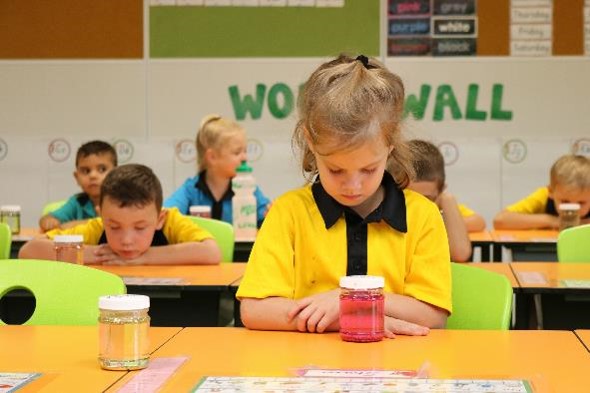Welcome to Queensland Mental Health Week (9-17 October). Mental health promotion is all about creating environments that promote and sustain positive mental health for everyone. That's where you can come in. The home environment is key to promoting the mental health of children. I believe if all children were taught how to cope with big emotions, what helps them feel good, the importance of taking time to engage in these activities and what to do when times are tough our future society would look bright.
“Childhood and adolescence are critical stages of life for mental health. This is a time when rapid growth and development take place in the brain. Children and adolescents acquire cognitive and social-emotional skills that shape their future mental health and are important for assuming adult roles in society." – WHO
At Mareeba State School our Mental Health Week focus this year is on kindness. A research study demonstrated the benefits of acts of kindness. When children were taught how to engage with kindness it increased their happiness quotient, as well as gaining an average of 1.5 friends during the month-long study period. They showed improvement in nurturing their own wellbeing and increased positive peer connections. Well-liked children display more positive, less bullying behaviour as teenagers and happier children are more likely to show higher academic achievement (Layous et al., 2012).

Teaching your child to practice acts of kindness is one way to help your child use protective behaviours for their own mental health, as well as helping them feel good with life and themselves. Interestingly, the German word for child is kind (pronounced kin-d with a short vowel). I often wonder if this is where the English word came from.
The PAUSE program implemented by Mareeba State School has a specific focus on kindness. Ask your child what feelings would be evoked in their amygdala if they were being kind to someone or if someone was being kind to them.

One way you can focus on Kindness this week is to brainstorm ways to practise kindness at home over the dinner table. Some ideas are doing jobs without being asked; cleaning up their things; helping a friend or next door neighbour with something; sharing a treat with their sibling; making a parent or carer breakfast; making their bed; helping you cook; helping with a household job; giving you a foot massage.
They may be familiar with the following Aesop's Fables: The Lion and the Mouse or The Ant and the Grasshopper which are tales of kindness. Read the stories with them or look them up on YouTube to watch.
Some students have reported being kind means...
-Smiling at the new student in class.
-Giving someone a compliment.
-Celebrating the differences in others.
Being kind to yourself is important - if you feel good children will pick on that energy and also soak up your renewed interest in them. Enjoy parenthood – time with children is never wasted - remember they can make you feel young at heart! Positive wording helps your children to think and act positively, and to feel capable in a wide range of situations. They will imagine success and talk themselves through to good outcomes. Our encouraging words stay with them for life.
Remember – One kind word can change someone's day.
Yours in Kindness,
Wendy Harris-Gallichan
Guidance Officer